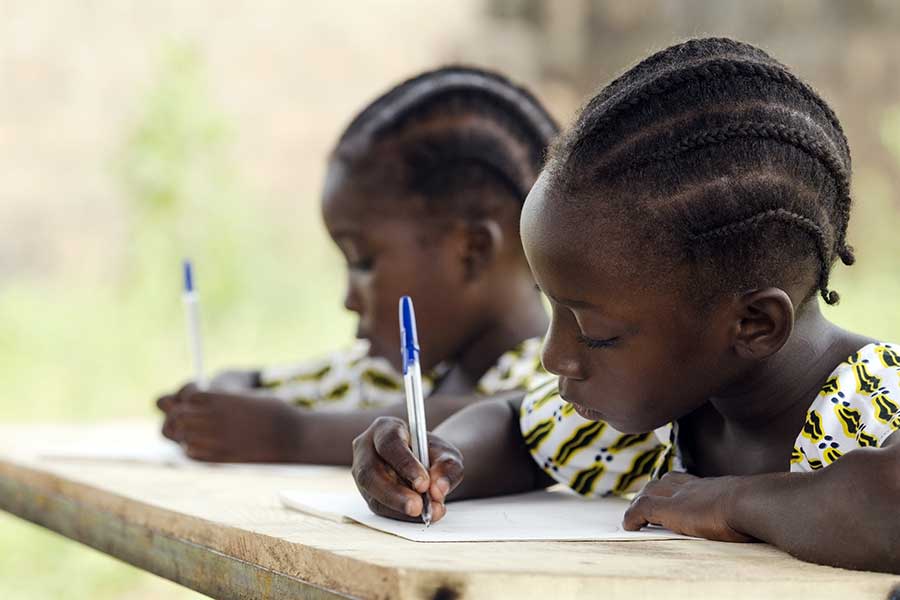Table of Contents
- Girls Education and Empowerment
- Global Education Crisis: Malala Fund's Perspective
- Education For All
- Beyond Schooling: Women's Access to Higher Education
- Brothers4Change: Paving the Way through Empowerment Education
- Conclusion
In the global pursuit of gender equality and female empowerment, education emerges as a formidable catalyst for transformative change. As we delve into the intricate web of challenges women and girls face worldwide, we uncover the transformative power education holds in shaping their destinies. From the grassroots initiatives championing girls' education to the broader landscape of women's access to higher education, the journey is riddled with barriers yet laden with potential.
Girls Education and Empowerment
The foundation of girls' education lies at the heart of women's empowerment. According to UNICEF, every additional year a girl spends in school can amplify her future income by a striking 10 percent. The benefits extend beyond economic gains, encompassing improved health outcomes and increased freedom and mobility. However, the stark reality persists that an estimated 130 million adolescent girls globally were out of school even before the pandemic disrupted educational systems.
The multifaceted approach required to ensure girls receive an education involves a delicate dance of community, school, and parental engagement. The Girls Education and Empowerment Lab is a testament to the commitment to exploring strategies that keep girls in school. The lab focuses on imparting knowledge and skills and engaging boys and men as partners in the empowerment journey. Additionally, there's a crucial emphasis on training educators in gender-sensitive teaching and fostering leadership among girls and young women.
Amidst the challenges posed by pandemic, virtual convenings have become the norm. Despite the shift from in-person retreats, the Girls' Education and Empowerment Lab partners showcase resilience, leading successful webinars and co-creating learning products. Their journey exemplifies the power of collective determination in overcoming adversities.
Global Education Crisis: Malala Fund's Perspective
A poignant perspective on the global education crisis is offered by the Malala Fund, which paints a stark picture over 130 million girls worldwide are not in school. The consequences of this educational deficit are profound, often manifesting in early marriages, limited economic opportunities, and dependency on spouses or families for financial support. The profound impact education underscores the urgency to address this crisis has on women's empowerment.
Education is the key to unlocking economic opportunities, workforce access, and decreased isolation. Studies reveal compelling statistics if every girl completes 12 years of education, child marriage could plummet by 64%, and health complications from early pregnancies could see a substantial decline.
Beyond individual empowerment, educating women and girls contributes to national economies, reduces the risk of conflict and extremism, and has been hailed as a potent investment against climate change by the Brookings Institution.
Yet, formidable barriers persist. The cost of education, challenges in transportation, forced labour, early marriages, and conflicts in home countries collectively impede the educational journey of countless girls. As girls progress to secondary school, enrollment rates drop significantly, and in developing countries, caregiving responsibilities often force girls to stay home, depriving them of educational opportunities.
Education For All
A collective journey unfolds in the pursuit of empowering women and girls through education. Each initiative plays a crucial role, from the grassroots efforts of the Girls Education and Empowerment Lab to global advocacy by organizations like the Malala Fund. The challenges are vast, encompassing cultural norms, economic constraints, and systemic barriers. Yet, the potential for change is equally immense.

Education is the cornerstone of empowerment, offering knowledge and skills and a pathway to economic independence, improved health, and societal transformation. As we navigate the complexities of girls' education and women's access to higher education, initiatives like Brothers4Change exemplify the tangible impact of targeted interventions, breaking down barriers and fostering a future where education is truly accessible to all.
Beyond Schooling: Women's Access to Higher Education
Post-secondary education emerges as a critical juncture in women's empowerment. Acquiring knowledge and experience through college or graduate school opens doors to active participation in government, business, and civil society. However, concerning trends loom, with countries like Japan, Korea, and Bolivia witnessing a decline in women pursuing higher education.
Even when women have access, cultural expectations persist. The unpaid "second shift" as primary homemakers and caregivers limits the time and energy dedicated to studies. Survivors of domestic violence face additional challenges, juggling household, financial, professional, and educational responsibilities. In some regions, the exorbitant cost of tuition acts as a formidable barrier, hindering women's pursuit of higher education.
Brothers4Change: Paving the Way through Empowerment Education
Amidst these challenges, initiatives like Brothers4Change's Empowerment Program shine as beacons of hope. The program allocates 10% of purchase profits to make education more accessible in developing countries. Crucially, the program tackles a specific barrier; the cost of school uniforms.
In many developing countries, school uniforms represent a significant financial burden for families. Brothers4Change takes decisive action by including school uniforms in its Empowerment Program. By alleviating this expense, parents find it easier to send their children to school, dismantling financial barriers and paving the way for brighter futures.
Conclusion
In this collective endeavour, school uniforms symbolize more than just attire; they become symbolic of breaking down financial barriers and opening doors to education. As we forge ahead, it is not just about sending girls to school; it is about creating an environment where they can thrive, learn, and become the architects of their destinies. The journey towards empowerment through education is ongoing. With concerted efforts, we can pave the way for a future where every woman and girl has the opportunity to unleash her full potential.

